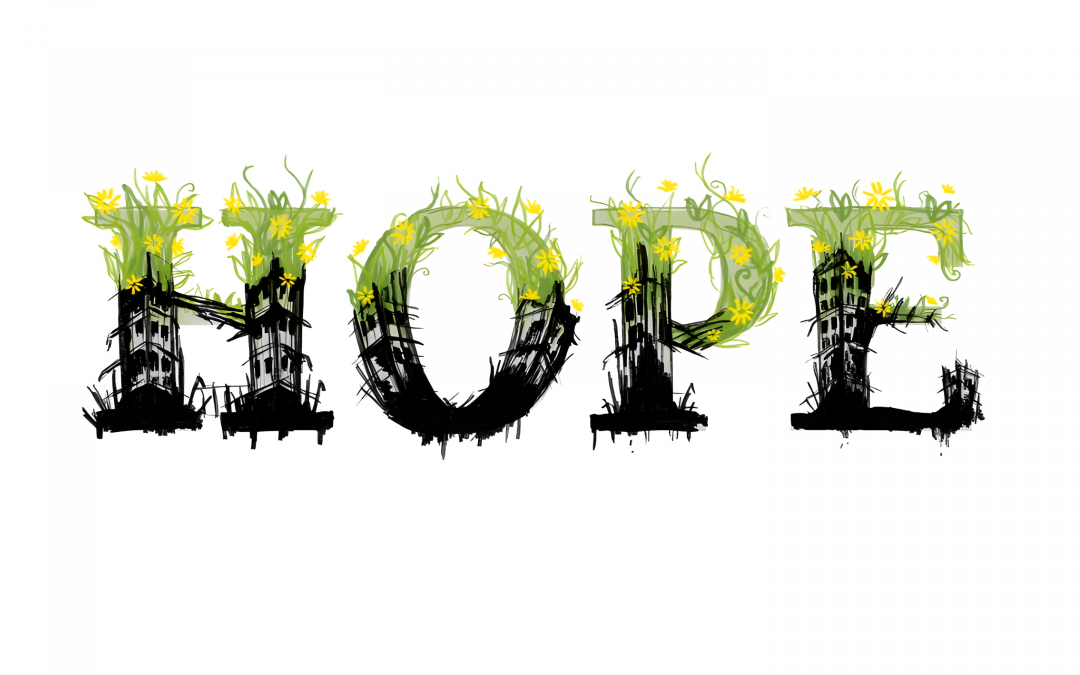
The Death of Us
June 25, 2025
Theologians in Real Life
August 12, 2025By Marika Rose
What does it mean to hope in the middle of a genocide unfolding in the full light of day, despite massive protests around the world and thousands of people making brave and dangerous attempts to throw their bodies on the gears of the war machine? What does hope look like in the context of a widening gulf between government policy and popular opinion on issues like climate change, healthcare and education? What can we, what should we, hope for as Western imperialism enters its death throes, and doubles down on its violent policing of borders, protests, and freedom flotillas; committing itself to increased defence spending as a desperate attempt to stave off economic decline and popular illegitimacy?
Queer theorist Lauren Berlant talks about ‘cruel optimism’ which exists, they say, ‘when something you desire is actually an obstacle to your flourishing.’ Philosopher Daniel Colluciello Barber suggests that something like cruel optimism can come to structure the way we critique the institutions that we are part of – the very act of critique, he suggests, is itself an investment in that institution. Why waste time understanding what’s wrong, trying to convince others to agree with us and so on if we don’t hope on some level, that change is possible, that the institution can become better? Critique can be a way of sustaining our relation to the things we criticise: as long as we’re putting our energy into critique then we are not putting it into other things. If you think you might be able to persuade your boss, your MP, or your church that they should change how they do things, then you are using your energy for that work of persuasion. You are not trying to work out how to use direct action to force a change that power does not want to give; you are not finding other ways to find power and pleasure in your life and relationships.
The Christian narrative of salvation and redemption can render us, as Amaryah Armstrong argues, unable to confront the reality of loss. It’s difficult not to fall into the logic of theodicy, which says that any kind of violence, suffering or defeat can be justified if – and only if – we believe that ultimately all shall be well, and all shall be well, and all manner of things shall be well. Modern secular narratives of historical progress have deep roots in Christian tradition. One thing that these narratives imply is that loss can only ever be a staging post on the way towards victory; that hope is only possible if we believe that God hides behind the curtain of history ensuring that, whatever happens to other people over there, we are going to be fine; that the suffering and defeat of others exists in the end as a backdrop to our own final triumph over history. Christ’s crucifixion has come to mean, for many of us, that what we hope for is not an end to suffering, a destruction of a world which is willing to put Christ to death, but that hope will emerge out of suffering, through suffering. There is a kind of obscenity in this. How much redemption will it take to cancel out the suffering of all of those who have been killed in Gaza, in California fires and Pakistani floods, in small boats in the British channel? What kind of glorious salvation will enable us to look back at the lives lost to austerity, to climate change, or to gender panics, to say that it was all worth it in the end?
Liberation theology has often talked about God’s preferential option for the poor, but there is a risk here – as liberation theologians well knew – that this sense of God’s solidarity with the oppressed can turn into a kind of fetishisation of suffering and poverty. What does it mean that it was not Palestinian resistance and struggle against occupation and genocide which brought about mass support within the West for the Palestinian cause, but the endless, unbearable images of Palestinian suffering? Why do we, as Christians, continue to be so much more easily moved by pity than by anger?
One way of reading the Christian story says that we cannot save ourselves, that hope comes to us from the outside, that all we can do between now and the end of the world is wait for Christ’s return. But another way to think about hope is as something that we do; another way to think about Christ’s ascension into heaven is as the inauguration of an era in which we do not have to wait around for someone else to come and rescue us, or endlessly work to persuade those with power do to things differently, or intervene only in situations where we can be the saviours of grateful needy people. If help is to come again from the outside then the only thing we are sure of is that we will not know when to expect it, and that we have no guarantee that we will not die waiting. What would hope look like if we started from the knowledge that empires rise and fall, that institutions silence and kill those who pose a threat to them, and that the only body Christ has on earth is ours?
The machinery of empire rolls on, without mercy; but it is a machine made up of people who make, maintain, and justify it as it grinds us beneath its wheels. Anything made can be unmade. Anything that works can be broken. Hope, as prison abolitionist Mariame Kaba writes, is a discipline.
Dr Marika Rose is Senior Lecturer in Philosophical Theology at the University of Winchester. She is the author of A Theology of Failure: Žižek Against Christian Innocence (Fordham University Press, 2019) and Theology for the End of the World (SCM Press, 2023).





1 Comment
I fully agree with the analysis, but I am not clear what is practically meant by hope being a discipline. How then should we live?